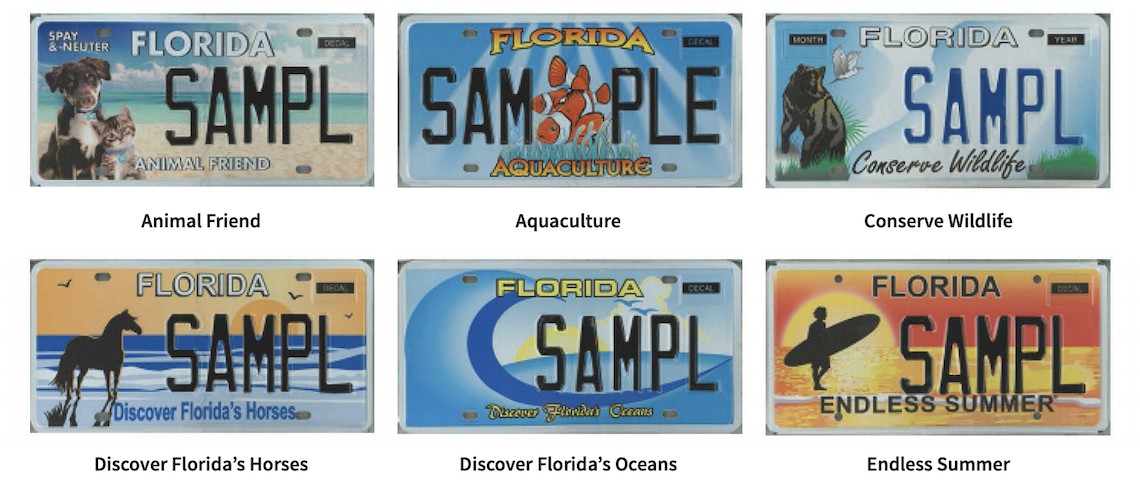Buying a car in Florida is an exciting experience, whether you’re upgrading your ride or getting your first vehicle. However, beyond the sticker price, it’s crucial to understand the additional costs, especially Sales Tax Florida Auto. The Sunshine State, while offering beautiful drives, requires you to pay sales tax, along with registration and title fees. This sales tax applies to both new and used vehicles and is calculated based on the full purchase price.
Understanding Florida’s Base Sales Tax Rate
Florida’s base sales tax rate is currently set at 6%. It’s essential to always verify the most up-to-date rate, which you can find on the official website of the Florida Department of Revenue. This department is your most reliable source for all things related to Florida sales tax.
It’s also worth noting that sales tax regulations and rates can vary significantly by state. If you’re not purchasing your vehicle in Florida, remember to check with your state’s department of revenue for their specific sales tax rates and any other applicable fees like inspection or documentation charges. Dealerships may also add their own fees when you buy from them.
Calculating Your Florida Auto Sales Tax: An Example
Calculating the Florida auto sales tax is straightforward. You simply multiply the vehicle’s purchase price by the current sales tax rate.
Let’s illustrate with an example. Suppose you’re buying a car for $25,000. To calculate the sales tax, you would do the following:
$25,000 (Purchase Price) x 0.06 (Sales Tax Rate) = $1,500 (Sales Tax Owed)
Therefore, on a $25,000 car, you would owe $1,500 in Florida sales tax at the base rate.
Discretionary Sales Surtaxes: County-Specific Rates in Florida
It’s important to be aware that Florida allows counties to impose an additional discretionary sales surtax. This surtax is added on top of the 6% state sales tax, meaning your total sales tax could be higher depending on the county where you register your vehicle.
Hillsborough County, for example, has one of the highest surtax rates in Florida. With a 2.5% discretionary sales surtax, the total sales tax rate in Hillsborough County reaches 8.5% (6% state sales tax + 2.5% surtax). This makes it one of the highest auto sales tax rates in the state. This higher rate in Hillsborough County is composed of several surtaxes implemented over time for specific purposes like transportation, schools, and healthcare.
To find the specific discretionary sales surtax rate for each county in Florida, you can refer to the official list provided by the Florida Department of Revenue: Florida Discretionary Sales Surtax Rates. Always check this document to understand the total sales tax you’ll be paying based on your county of residence.
 Florida specialty license plates
Florida specialty license plates
Alt text: A collection of متنوع Florida specialty license plates displayed against a neutral background, showcasing the variety of designs and causes supported by the state.
Beyond Sales Tax: Other Fees When Buying a Car in Florida
When budgeting for a car purchase in Florida, remember that sales tax is not the only additional expense. You also need to account for other fees:
- Title Fee: This fee is for the legal document proving your vehicle ownership. In Florida, the title fee is typically $75.75.
- Registration Fees: These fees vary depending on vehicle type and size. Initial registration can start around $225, but can increase for larger vehicles. It’s important to check the specific registration cost for your vehicle type with the Florida Department of Highway Safety and Motor Vehicles (FLHSMV).
- License Plates and Tags: Florida offers standard plates and a wide array of specialty license plates. Specialty plates, supporting various causes and organizations, come with additional fees.
To pay these fees, you’ll typically go through your local Florida Department of Motor Vehicles office. It’s also wise to research the ongoing costs of car ownership, including auto insurance premiums for your new vehicle.
Purchasing a Vehicle Outside of Florida but Registering in Florida
Even if you buy a car outside of Florida, if you intend to register and use it in the state, you will still be liable for Florida auto sales tax. In this case, it’s referred to as a “use tax,” and it’s also set at 6%. However, Florida offers a credit for any sales taxes you paid in the state where you purchased the vehicle.
If the sales tax you paid in the other state is equal to or greater than Florida’s sales tax, you won’t owe any further sales tax to Florida. If the other state’s sales tax is lower, you will only need to pay the difference to Florida, plus any applicable discretionary surtax. This prevents double taxation and makes the process fairer for those moving to Florida or purchasing vehicles out of state.
Understanding Sales Tax Exemptions in Florida
Certain situations may qualify for sales tax exemptions in Florida. These exemptions are specific and outlined by the Florida Department of Revenue. Some key exemptions include:
- Vehicles for Resale or Lease: Registered car dealers purchasing vehicles for resale or leasing purposes are exempt from sales tax.
- Out-of-State Delivery: If a dealer delivers a vehicle to you outside of Florida, the sale is exempt from Florida sales tax.
- Vehicles Shipped Out of State: Vehicles purchased in Florida and shipped out of state via a licensed exporter are also exempt.
- Exempt Entities: Entities holding a Florida form DR-14 (Consumer’s Certificate of Exemption) are exempt when purchasing a vehicle.
- Out-of-State Dealers Purchasing for Resale: Car dealers from outside Florida without Florida sales tax numbers are exempt when buying vehicles for resale or lease.
You can find a comprehensive list of exemptions on the Florida Department of Revenue website.
Trade-ins and Sales Tax
Florida offers a sales tax benefit for trade-ins in specific private transactions. When two individuals trade vehicles directly (without a dealership involved) and exchange one vehicle for another (car, motorcycle, mobile home, etc.), a trade-in allowance can be subtracted from the taxable sales price. Crucially, no money can be exchanged in addition to the vehicles for this exemption to apply.
Loaned Vehicles and Sales Tax
Loaned vehicles can also be exempt from Florida sales tax under specific circumstances. This includes vehicles loaned to high schools or educational institutions for driver’s education programs, provided they have a designated license plate. Similarly, courtesy vehicles loaned to customers while their own cars are being repaired are considered loaners and may also be exempt.
